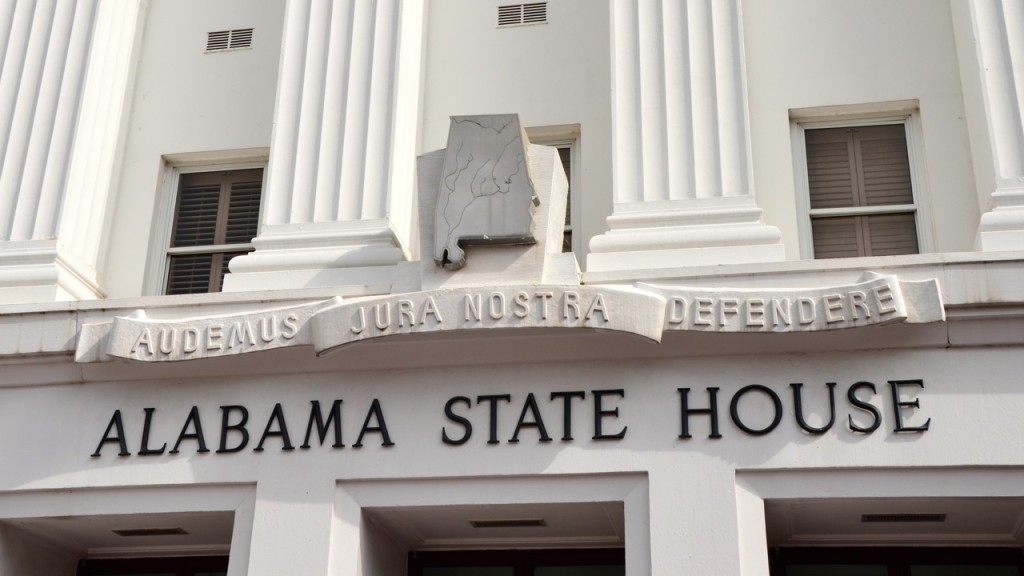State House passes Silver Alert bill to protect missing persons with Alzheimer’s

There are an estimated 5.5 million Americans living with Alzheimer’s disease, and this number is expected to grow to as many as 16 million by 2050. According to the Alzheimer’s Association, six in 10 people with dementia will wander at some point during the course of the disease. Wandering can be dangerous, even life threatening, as person with Alzheimer’s may not remember his or her name or address, and can become easily disoriented, even in familiar places. If not found within a 24-hour period, up to half will suffer serious injury or death. It’s an incredibly stressful situation that weighs heavily on caregivers and family On Thursday, the State House took a step forward to help alleviate a bit of that stress and find missing seniors with the passage of HB427. Sponsored by Huntsville-Democrat state Rep. Laura Hall, HB427 updates a statewide Silver Alert system to provide families a way to locate lost or missing seniors who may be endangered. Similar to Amber Alert system, Silver Alerts allow law enforcement to disseminate statewide alerts for missing seniors. Currently, Alabama issues alerts for seniors under certain circumstances — including being over 60 years of age — but Hall’s bill includes adults with Alzheimer’s or other cognitive disorders, regardless of age. It also requires specialized training for law enforcement personnel who participate in searching for missing persons with Alzheimer’s disease or dementia. “This Silver Alert bill will play a significant role in the safety of those with Alzheimer’s and other types of dementia,” said Hall. “As a community, we need to do what we can to establish these protocols in order to keep our loved ones with dementia safe.” Lawmakers voted 99-0 in support of the legislation. It now moves to the State Senate.
Alabama Legislature passes bill to close abortion clinics near schools on final day of session

The Alabama Legislature was on a mission Wednesday, it’s last day of regular session, to tick off another to-do item the “Right for Alabama” agenda GOP leadership laid out in February. With time ticking away, the Alabama House took up a controversial bill, HB 301 sponsored by Rep. Ed Henry, a Decatur Republican, which prohibits abortion clinics from being within 2,000 feet from any K-8 public school. The bill does this by directing the Alabama Department of Public Health not to reissue licenses for any clinic within 2,000 feet of a school. Despite strong Democratic opposition and an attempt to filibuster, the bill overwhelmingly passed the state House in 73-18 vote. The bill now awaits Gov. Robert Bentley‘s signature. If signed into law, the bill would force two abortion clinics in the state to close, including one in Huntsville stationed across the street from Edward H. White Middle School, which was forced to move to its current location near a public school after the state mandated new facility requirements in 2013. “It disturbs me that a person has tried to abide by the law, and still gets penalized,” Hunstville-Democratic Rep. Laura Hall said, according to the Associated Press. “It is unfair for an individual to meet the demands of a law that we passed and when they moved, we create another law to put them basically out of business.” The state Senate had passed its version of the bill in March by a vote of 27-6. “If we currently protect a physical buffer between students and liquor stores, it is common sense that we would protect them from attending school near an abortion clinic,” Sen. Paul Sanford of Huntsville said upon the Senate’s passage of the bill. “This will not mandate any abortion clinic to shut down, but I have no problem if it forces a clinic or two to move away from our kids.”
Law protects health workers refusing to perform care that runs against personal beliefs

Healthcare providers could refuse to perform services that run against their beliefs under legislation considered in the House Committee on Health on Wednesday. Rep. Arnold Mooney is sponsoring House Bill 491 also known as the Healthcare Rights of Conscience Act. The bill gives providers the right to refuse to perform or participate in health care services that violate their moral or religious beliefs. Further, providers would be immune from any civil, criminal, or administrative liability for refusing to participate in services that go against their conscience. During Wednesday’s public hearing, Rep. Mooney said that in emergency situations, health care providers would be required to provide medical care until another worker is able to step in. Workers would be required to given their employer written notice of their objections at least 24 hours before the procedure. “This bill allows people to get the services they choose to have from providers who choose to provide it,” said Rep. Mooney. Several advocates spoke in favor of the bill, including one man who said it would treat “health care workers as human beings, not automatons.” Concerns over the bill included its potential to block a patient’s ability to make an informed decision, since practitioners could refuse to offer certain options based on their personal beliefs rather than on medical evidence or potential for health risk. Rep. Laura Hall suggested an amendment that would require health offices to post information clearly stating that that medical staff could refuse certain services. She compared the requirement to the Alabama law concerning placing signs outside of businesses where guns are not allowed. Rep. Mooney signaled that he would be unwilling to consider amending the bill. The committee declined to vote on Wednesday.


